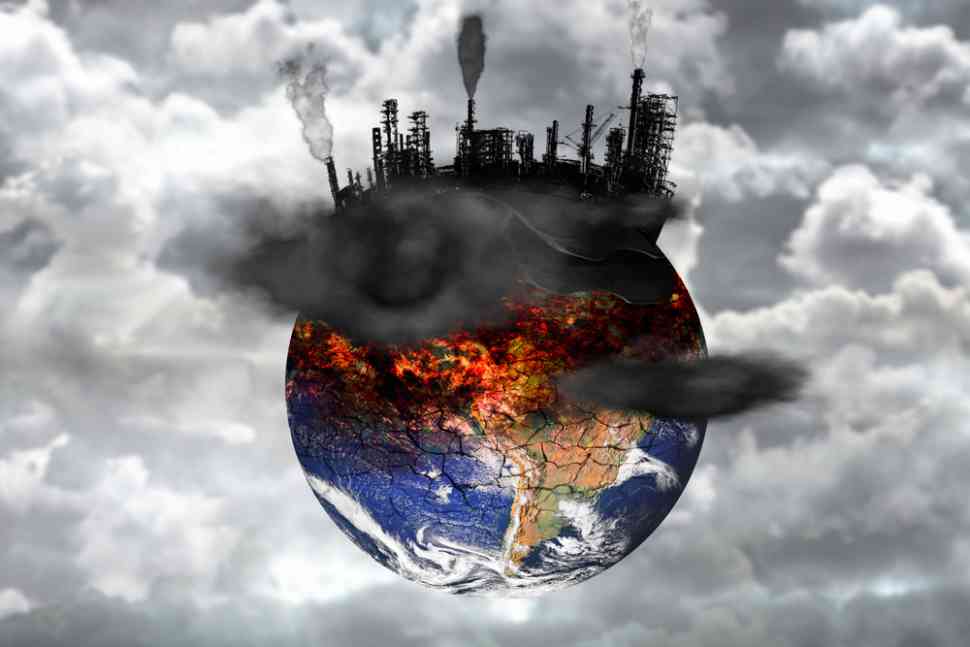The Ecological Crisis and our Ability to Reverse It

One of the significant problems we have been facing in recent years is the ecological crisis and the environmental problems threatening our planet. Ecological alterations have always existed. Sometimes they have come from natural disasters and environmental changes, where they automatically create new ecological balances in nature. In other cases, they result from the thoughtless exploitation of the natural environment by humans to satisfy their needs without counting the destruction it causes.
Our relationship with nature
The ecological crisis is due to the problematic relationship of people with nature. The term anthropocentric describes the misunderstanding people have about reality. Anthropocentric means that someone believes humans are the center of everything. It is them who govern the world, and they are nature’s most precious gem. People do not govern the world, the laws of physics govern the world, and everything is placed in a graceful dance of imbalances.
Some alarming examples
From ancient times, man gradually began exploiting nature to survive and reproduce. Then and over time, the gradual increase of the population proportionally increased the exploitation of natural resources so that the needs of people could be met, but without attempts to return the balance to nature. The problem of the ecological crisis has taken on massive proportions through scientific and technological evolution since issues such as soil pollution have arisen.
In addition, air pollution increases the greenhouse effect, resulting in continuous global warming. Most important of all, however, are environmental accidents, such as 1986 in Ukraine with the explosion of one of the four nuclear reactors of the Chernobyl nuclear power plant, where it spread a radioactive fallout within a radius of 2,000 kilometers and is responsible for a vast number of diseases caused by the side effects of this disaster.
Scientists agree
With the rapid pace of technological development in the middle of the 18th century, the Industrial Revolution emerged. Suzanne Simard, a professor of forest ecology, underlines the importance of the Industrial Revolution. Suzanne is also the author of ”Finding the Mother Tree: Discovering the Wisdom of the Forest,” and she has been in constant interaction with questions that need a deep understanding of nature and ecology in general. Many scientists consider industrialized countries’ attitudes responsible for the planet’s destruction. Finally, another critical factor in creating ecological problems is the need for a more strict environmental policy.
A continuous philosophical question
From a philosophical point of view, ecological problems are considered to reflect the internal crisis of man with himself. This crisis is supposed to be generated because people do not accept things as they are. The results are reflected in the environment and nature. One of the most significant errors of humans was the abuse of power they used over animals and nature, considering that they are superior but forgetting that they are not the boss of nature but merely continuer. This led us to several disasters, of which we have to accept the consequences.
Restoring the relationship with nature
Once we realize that what we do has negative results, we are completely allowed to change our behavior. Human nature does not force us to be destructive. On the other hand, it encourages us to be productive. If productivity cannot be achieved, our nature will call us to change our style. So, human nature is not to blame. We are part of this planet and a part of nature, so whatever serves the planet serves us as well.
To stop being anthropocentric, we have to consider ourselves a part of nature and think that nature is a part of us. Earth is our home, as it is also the home for all the species that have found a way to survive. To conclude, despite the tremendous ecological disaster that we have caused in nature, there is still the opportunity to realize and change our actions to restore, as much as possible, the balance in nature and our relationship with it.
Have you read?
Why your mindset is key to great business profits by Clare Wood.
How the wealthy manage their money differently by Jacqui Clarke.
What Active Diasporas Can Do For The Country And The Other Way Around by Radu Magdin.
Managing the Data Security Risks of Generative AI.
Tech or Talent, Both Need to be Guided by Value Frameworks to Create a Better World by Ram Krishna Sinha.
Bring the best of the CEOWORLD magazine's global journalism to audiences in the United States and around the world. - Add CEOWORLD magazine to your Google News feed.
Follow CEOWORLD magazine headlines on: Google News, LinkedIn, Twitter, and Facebook.
Copyright 2025 The CEOWORLD magazine. All rights reserved. This material (and any extract from it) must not be copied, redistributed or placed on any website, without CEOWORLD magazine' prior written consent. For media queries, please contact: info@ceoworld.biz








